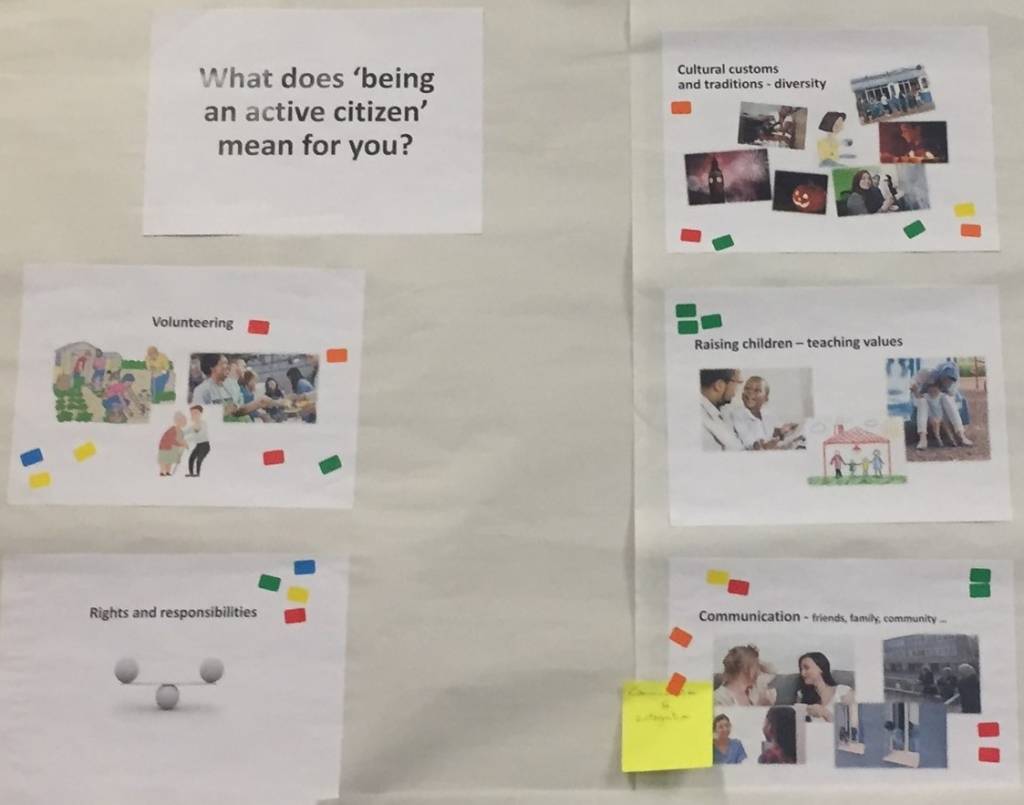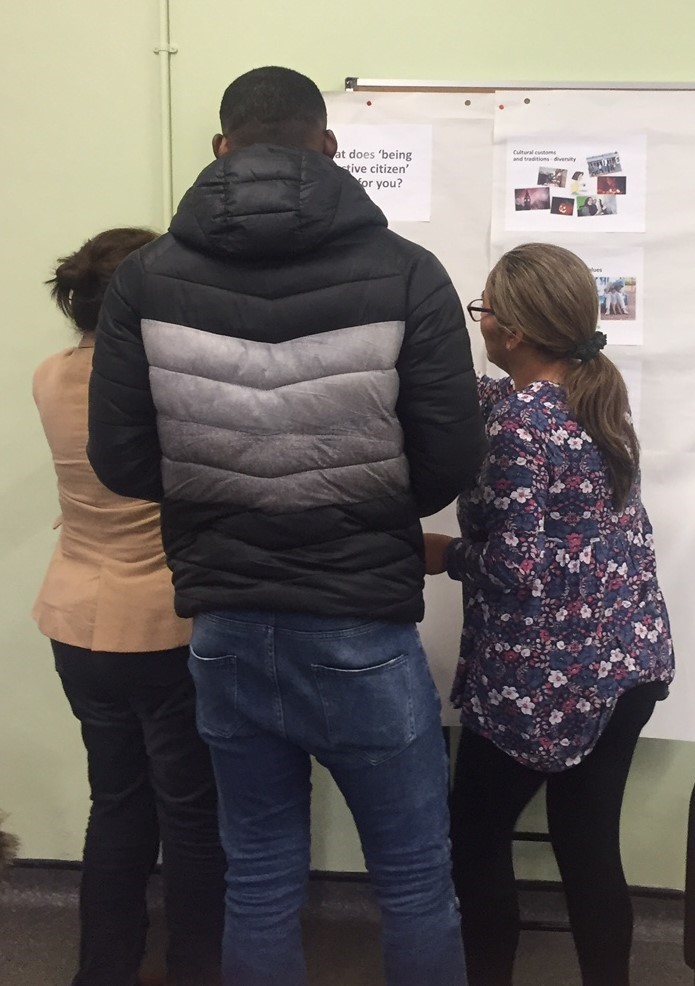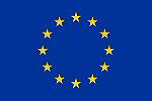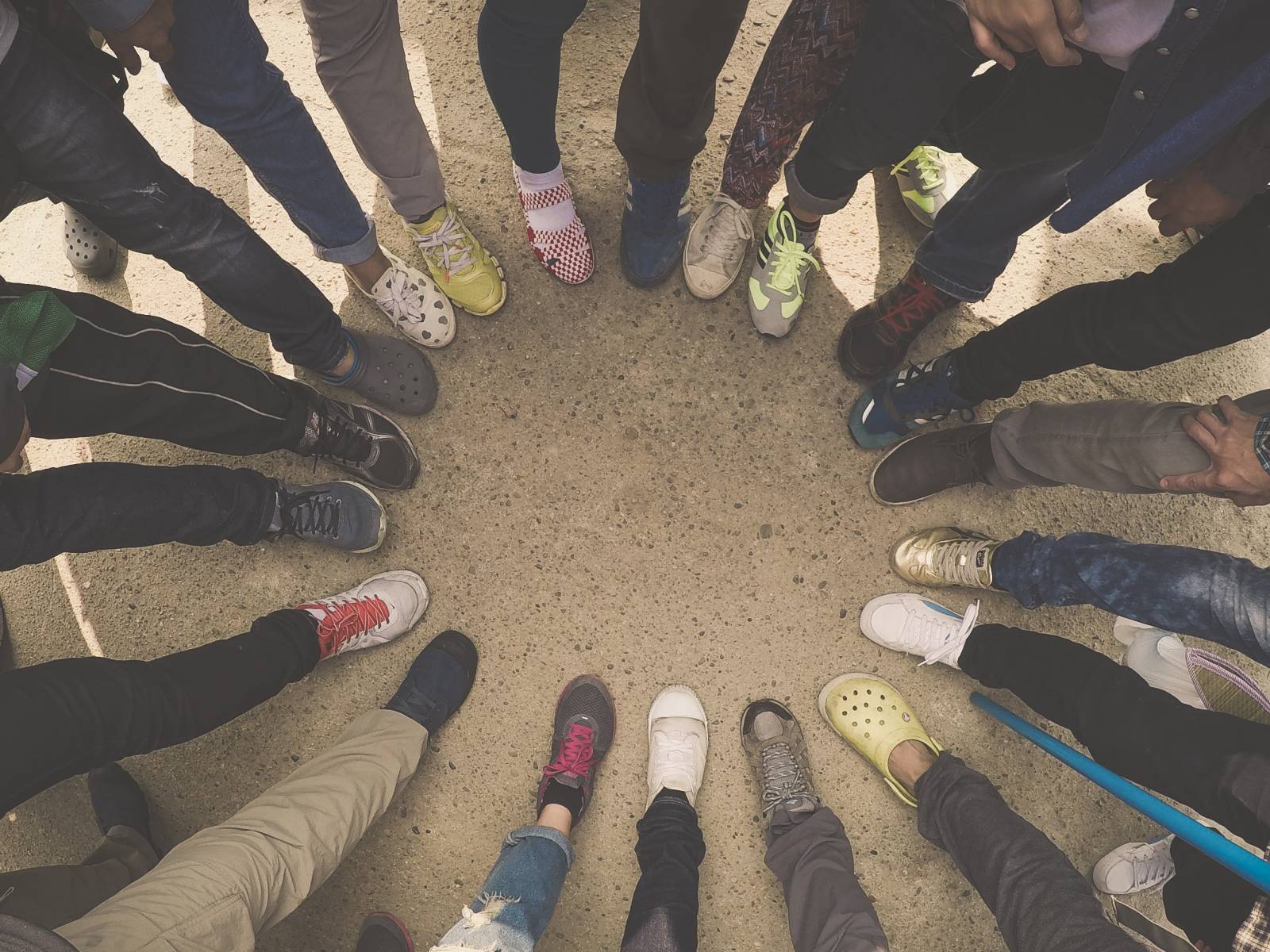Last week, EduMAP’s Natasha Kersh and Nathalie Huegler were given the opportunity to discuss research findings with learners of an ESOL (English for Speakers of Other Languages) programme at an adult education college with a long-standing tradition of providing inclusive education in an area of London with historically high levels of poverty and deprivation. The programme at this college (with a previous cohort) had been at the centre of one of our research examples of good practice, and we were delighted to be invited back to share some of our findings. With both its rich history and vibrant modern feel, the college proved an ideal and welcoming setting for engaging with current ESOL learners about some of EduMAP’s findings regarding active participatory citizenship.
As shown both by our research findings and as confirmed by the current ESOL learners we met, active participatory citizenship relies first and foremost on communication: from conversations with doctors or teachers, supporting friends, family and neighbours through to engaging in volunteering, working, or participating in political decision-making processes – for ESOL learners a key aim is developing increasing confidence in communicating in day-to-day interactions which form the basis for active citizenship practice. At the same time, ESOL learning, especially given the college’s history and current approach to promoting both social inclusion and celebrating diversity, is based on mutual exchange and learning, starting from learners’ own experiences and backgrounds and linking learning in the classroom back to everyday life contexts. Especially given this real-life experience context it is important to remember that taking part in adult education opportunities as well as active participatory citizenship can involve a great deal of courage to overcome barriers and deal with set-backs or disappointments. Considering barriers to active participation has been an important part of the EduMAP research, but this also featured among the concerns of some learners we met:
Especially given this real-life experience context it is important to remember that taking part in adult education opportunities as well as active participatory citizenship can involve a great deal of courage to overcome barriers and deal with set-backs or disappointments. Considering barriers to active participation has been an important part of the EduMAP research, but this also featured among the concerns of some learners we met:
How can I feel integrated if I hardly ever see my neighbours in the housing estate where I live? What if people look at me strangely when I try to start a conversation about the weather at the bus stop? What if the city I live in sometimes feels less welcoming than I would hope for?
In considering the rewards and benefits of active participatory citizenship, researchers need to remain aware that getting involved and reaching out to others also requires a lot of courage and is not without risks of set-backs or disappointment. Here, one of the most important functions of adult education comes to the fore: supporting learners’ confidence and helping them develop skills, competences that enhance their capabilities, while preparing them for all aspects of participation – the hopes, the rewards and the resilience to deal with set-backs. It is this support and preparation which good practice examples such as this ESOL programme excel in providing, as we have found in our research here and elsewhere within the EduMAP project.
Nathalie Huegler



Comments